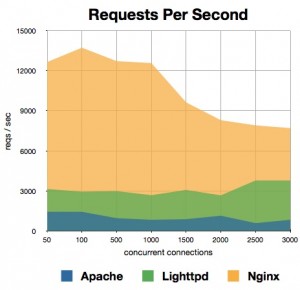Seriously guys, why do you STILL trust in Apache2, there are so many, way better webservers out there!
Let the siege test speak:
my nginxpowered blog:
Lifting the server siege… done.
Transactions: 415 hits
Availability: 100.00 %
Elapsed time: 9.19 secs
Data transferred: 2.14 MB
Response time: 0.96 secs
Transaction rate: 45.16 trans/sec
Throughput: 0.23 MB/sec
Concurrency: 43.24
Successful transactions: 415
Failed transactions: 0
Longest transaction: 2.88
Shortest transaction: 0.12
some apache blog:
Lifting the server siege… done.
Transactions: 85 hits
Availability: 100.00 %
Elapsed time: 9.96 secs
Data transferred: 3.04 MB
Response time: 3.45 secs
Transaction rate: 8.53 trans/sec
Throughput: 0.31 MB/sec
Concurrency: 29.43
Successful transactions: 85
Failed transactions: 0
Longest transaction: 8.35
Shortest transaction: 0.11
Don’t forget about the 20x more memory usage.
And now the final picture that should change your mind about Apache2!
Y U NO JUST USE NGINX!

Schreibe einen Kommentar zu q23p.de Antwort abbrechen